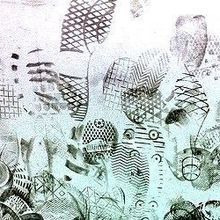Login
Subscribescientific method

Belief in the Unseen
Bob Grant | Jun 1, 2019 | 3 min read
Science doesn’t require faith, but fostering trust in its practitioners can help the public move past unfounded doubts.

Drop Statistical Significance, Scientists Say
Carolyn Wilke | Mar 21, 2019 | 2 min read
In service of an arbitrary threshold, p-values often lead researchers to make poorly supported claims and ignore interesting but insignificant results, scientists argue.

Racing for the Ribosome
Venki Ramakrishnan | Dec 1, 2018 | 3 min read
Nobel laureate Venki Ramakrishnan’s new book recounts the tale of researchers striving to understand an ancient molecular machine that is essential for all life.

How to Use P-Values Correctly
Kerry Grens | Mar 9, 2016 | 2 min read
The American Statistical Association offers guidance on best practices for the oft-misused tool.

Mind and Matter
Jo Marchant | Feb 1, 2016 | 3 min read
Research suggests that a combination of mental power and conventional medicine may be better than either alone.

Book Excerpt from Cure
Jo Marchant | Jan 31, 2016 | 4 min read
In the introduction to the book, author Jo Marchant describes an interaction with a mother who embraced homeopathy as the jumping off point for writing about the scientific realities of alternative medicine.

Inside a Lab Mouse’s High-Fat Diet
Kate Yandell | Nov 23, 2015 | 4 min read
Researchers should pay closer attention to the diets they use to study obesity in mice, experts advise.

Organ Engineer Cleared of Misconduct
Bob Grant | Aug 31, 2015 | 2 min read
The Karolinska Institute has rejected the conclusions of an earlier, independent investigation, finding regenerative medicine researcher Paolo Macchiarini not guilty of scientific misconduct.

The Rules of Replication
Kerry Grens | Nov 1, 2014 | 7 min read
Should there be standard protocols for how researchers attempt to reproduce the work of others?

Researching Research
Jef Akst | Apr 28, 2014 | 1 min read
Stanford University starts new center to study how scientific research can be improved.

Men Trigger Mouse Stress
Jef Akst | Apr 28, 2014 | 4 min read
Mice become stressed in the presence of male, but not female, experimenters, triggering a physiological response that dampens pain.

NIH Tackles Irreproducibility
Jef Akst | Jan 28, 2014 | 2 min read
The federal agency speaks out about how to improve the quality of scientific research.

Retracing Steps
Aimee Swartz | Nov 11, 2013 | 3 min read
Sage Bionetworks aims to show that transparency and sharing are key to ensuring research reproducibility.

Opinion: Video Saved the Scientific Publication
Moshe Pritsker | Nov 11, 2013 | 4 min read
How visual materials and methods can save scientists time and money.

Opinion: The Best Projects Are Least Obvious
Nikolai Slavov | Sep 25, 2013 | 2 min read
Today’s technologies have opened all sorts of experimental avenues. Deciding which questions are best to pursue requires a certain degree of restraint.

Nature Announces Reproducibility Initiative
Kate Yandell | Apr 25, 2013 | 1 min read
The journal is sharpening its review of life science papers and giving authors additional space to document more detailed methods.

New Center for Scientific Transparency
Dan Cossins | Mar 6, 2013 | 2 min read
Psychologists have launched a new organization to encourage openness and improve the reliability of findings in their own field and beyond.

Opinion: Communication Crisis in Research
David Rubenson | Jan 30, 2013 | 4 min read
The problem threatens progress and stems from both a lack of attention to clear discourse and a scientific culture not focused on critical challenges.

Overly Honest Methods
Beth Marie Mole | Jan 10, 2013 | 2 min read
A trending hashtag on Twitter lets researchers reveal the lighter side of scientific methodology.
